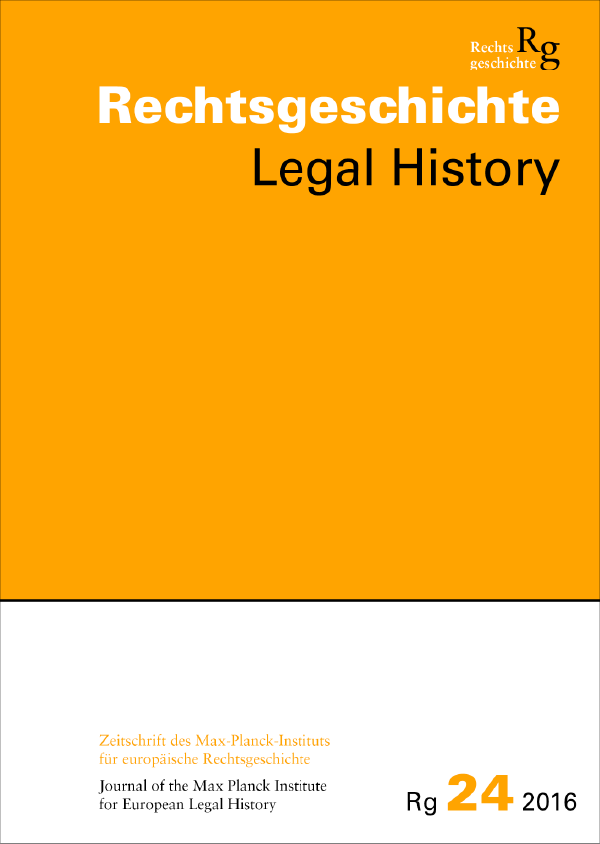Austrägalgerichtsbarkeit – Interstate Dispute Settlement in a Confederate Arrangement, 1815 to 1866
DOI:
https://doi.org/10.12946/rg24/074-099Abstract
This article analyses the interstate dispute settlement mechanisms between member states of the German Confederation (Deutscher Bund). The question as to how disputes between German sovereigns should be decided already had a long (pre-)history dating back to the Middle Ages. Article 11 IV of the German Federal Act (1815) (Bundesakte) was the basic norm of the so-called Austrägal jurisdiction enacted to resolve disputes between states of the German Confederation and stipulated the manner in which the dispute was to be brought to ›court‹ (Austrägalinstanz). During the period of the German Confederation, 10 out of 25 German courts of third instance handled altogether 54 Austrägal cases. Whereas Austrägal jurisdiction was no longer present in the German Kaiserreich, Emperor William II and the professor of public law Paul Laband attempted to resurrect the idea, but failed due to the resistance of the other German princes.
Downloads
Veröffentlicht
Zitationsvorschlag
Ausgabe
Rubrik
Lizenz
Copyright (c) 2016 Autor/in

Dieses Werk steht unter einer Creative Commons Namensnennung - Nicht-kommerziell - Keine Bearbeitung 3.0 International -Lizenz.





